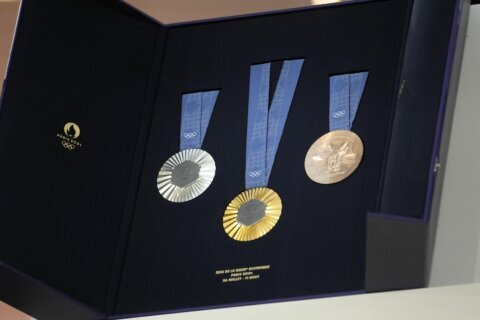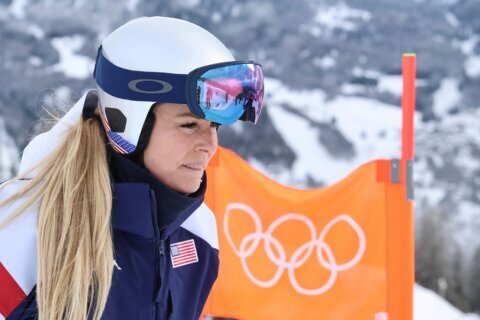
You can only get them every four years, but an Olympic medal can be worth millions to those who win one. But as rare as they are, some medals have the potential to not be worth much at all.
The reality is there are tons of sports and not every one will get a lot of attention, which means the value of a gold, silver or bronze medal can vary drastically.
“It can be something that is life defining and we can find that you become an icon,” said Hank Boyd, a clinical professor of marketing at the University of Maryland. “Think of Simone Biles — she is the darling of the world of gymnastics.
“Certain sports lend themselves the visibility,” he added. “When I think of the swimming, I think of the gymnastics — the world is your oyster. In some sense, it could be a multimillion dollar set of deals for you down the line. But it’s predicated on, not only getting the gold, but do you have a compelling narrative? Is there something about you? (Do) you bring the ‘rizz’ or you’re charismatic, and people go ‘I really liked this individual. I’m drawn to this individual.'”
Boyd cited Stephen Nedoroscik, America’s new men’s gymnastics icon who just so happens to look a bit like Clark Kent. He dominated as the team’s only specialist in the pommel horse competition. Boyd expects some serious financial opportunities to come for Nedoroscik, after helping the U.S. men’s team win a bronze medal in an event it tends not to do as well in.
But gold medals in the sports that get less attention can be a different story.
“Will it be sponsors out there, or are you simply doing it for the love of the sport?” asked Boyd. “I would imagine in certain circles, if it’s certain high-end products, maybe there’s an audience for that. But it’s much more limited than some of the other sports that are out there that are more accessible to the public.”
- Meet the DC-area athletes who’ve qualified for the Paris Olympics
- She grew up in McLean. Now she’s part of one of the ‘greatest sports dynasties’ in the US — and heading to her 2nd Olympics
- She dreamed of becoming an Olympian. Now, Ashburn-native Emily Fox is set to help lead the US women’s soccer team
Some of the newer sports like break dancing, surfing, skateboarding or even mountain biking might be exceptions if a brand can see that person connecting with Millennials and Gen Zers. Of course, just making it to the Olympics can also pay off for you, even if it doesn’t land you on cereal boxes and in commercials.
“Anyone who can say ‘I’ve been to the Olympics, I’ve actually competed in an event, maybe I didn’t place, maybe I didn’t medal,’ it’s still something that’s amazing to put down on one’s resume,” said Boyd. “And I tend to think that in a marketplace with all these job candidates, if you can say ‘I’m an Olympian,’ I’m going to notice (and) I’m going to check your resume out.”
Boyd emphasized how much people love a self-made athlete who becomes a fan favorite: “We love drive and people that are saying, ‘I’m self starter. You don’t have to tell me what to do. I’m going to go that extra mile for you and it’s just built into me.’ Who wouldn’t want to hire someone and have them part of your team?”
Get breaking news and daily headlines delivered to your email inbox by signing up here.
© 2024 WTOP. All Rights Reserved. This website is not intended for users located within the European Economic Area.









